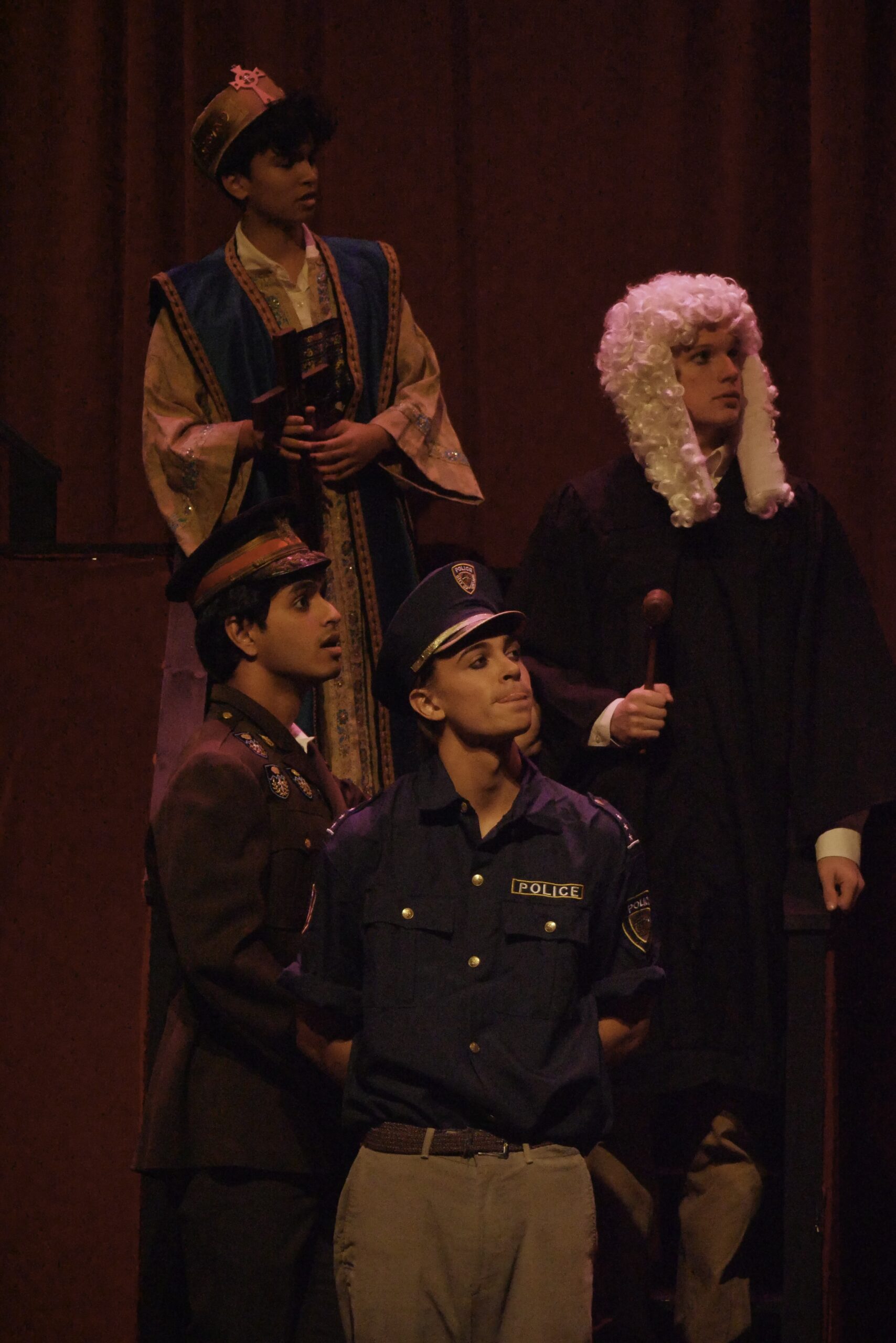“The Balcony” stuns sold out audiences
October 25, 2024
 Michael Solano
Michael SolanoSex, war, revolution and illusion: These are a few of the unconventional themes central to “The Balcony,” Masque and Gown’s fall main-stage production. The play premiered in Wish Theater last Friday and Saturday, during Family Weekend, with fully sold-out audiences. The peculiar themes of this absurdist play, written by Jean Genet in 1956, are what inspired Rithmaka Karunadhara ’26 to direct it.
“I want to make art that makes people uncomfortable, because I don’t think impactful theater can be made without making people uncomfortable,” Karunadhara said.
Almost the entirety of the play takes place within a brothel in the backdrop of a nameless revolution. It tackles ideas of power dynamics and control. These are tied with themes of navigating through a life or world with no meaning, approached by absurdist artists such as Ana Mendieta and Salvador Dali as well as Genet.
Karunadhara directed this play in hopes of bringing something new to the theater culture at Bowdoin. He wanted to inspire others to create similar projects as well.
“I think the play alters the type of theater culture we have here, because the culture that we have here is either very classical or just kind of lighthearted comedy,” Karunadhara said. “Theater is there for a bigger purpose, and I think this play being done here will awaken more people to take on things like this, because I feel like this is theater that’s important to be seen and talked about more.”
Liam Kelly-Thompson ’28, who plays the Envoy of the Queen, echoed Karunadhara’s sentiments, noting what the play is bringing to the Bowdoin community.
“‘The Balcony’ is a play that tries to illuminate the absurdity and cruelty of humanity. This experience allowed for the campus community to engage with some dark and intense themes, tempered with comedy,” Thompson said. “You can say a lot of things about Jean Genet, but you can’t say that the play he concocted isn’t unique.”
Jack Vickery ’28, the stage manager of the production, said the process of the play coming to fruition was satisfying and fulfilling.
“I really liked watching how the play changed over time. Seeing it right at the start where people are just reading through the script and then being able to see the final product—it’s very satisfying. Being there for people and helping them with whatever they needed was awesome,” Vickery said.
The play spoke especially to Karunadhara due to his experiences with rebellion in his home country of Sri Lanka.
“One of the reasons the play resonated with me the most was because in Sri Lanka, when we were rebelling against our president in 2021, and we did a 150-day protest where we were camping outside the president’s office, we were hoping for a change,” Karunadhara said. “Even though the president fled the country because he was afraid of the people, we still didn’t get [an] answer…. So, what was the point of that revolution? Is there a point in revolution? That’s what this play is asking.”
Audience member Owen Henry Keller ’28 noted these questions of revolution.
“I enjoyed the play deeply, both from a writing standpoint and from a production standpoint.… The show impressed me with its commentary of systems of power and how we choose where power lies,” Keller said. “It makes me wonder how we can truly begin to rebuild a system with parts leftover from the previous one without the same thing happening again and again.”
Karunadhara understood the difficulty in directing this play, due to its strong subject matter and sexual nature. He wanted to make sure the undertones of the play were noticeable while still retaining the realism of the play.
“I wanted this idea of surveillance to be very present in the room. I wanted to make the audience feel like they were being watched,” Karunadhara said. “There’s a lot of subtexts that you won’t understand unless you really read the play. A lot of the movement and choreography that I tried to bring into the play was to give a visual to those metaphors and subtexts.”
Karunadhara emphasized that the production was a group effort from the cast, crew and theater employees.
“There are so many people who got involved creatively,” Karunadhara said. “So all of those guys, this is their brain child as much as it is mine. It wouldn’t be what it is without them coming into the picture.”

Comments
Before submitting a comment, please review our comment policy. Some key points from the policy: